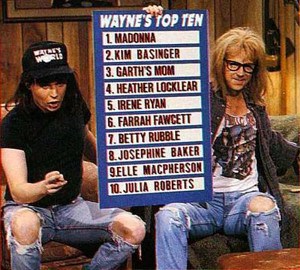We came, we read, we gushed.

John Lewis: A Life by David Greenberg (Simon & Schuster). Reviewed by Kitty Kelley. “A masterful biography is like a shooting star. It’s a celestial phenomenon that lights up the night sky and bestows a sense of wonder and excitement. Such a sensation occurs when the stars align and match a subject of worth with an estimable writer. That kind of luminous pairing occurs in David Greenberg’s John Lewis: A Life, the first major biography of the man Martin Luther King Jr. called ‘the boy from Troy.’”
Playground: A Novel by Richard Powers (W.W. Norton & Company). Reviewed by Kristin H. Macomber. “Playground’s swirling narrative centers around two young men: one brilliant and entitled, the other brilliant and penniless, both suffering from personal lives they’re anxious to escape. They meet in high school and bond over their mutual love of board games — first chess, later Chinese go — along with their parallel desire to outdo one another on all fronts. Over time, they shift from nonstop competition to pursuing their individual interests as they set off on wildly divergent academic paths: poetry and computer science. Once in college, the men befriend a young woman who shrewdly draws them out with a game that requires each to share his innermost truths and dreams.”
American Scary: A History of Horror, from Salem to Stephen King and Beyond by Jeremy Dauber (Algonquin Books). Reviewed by Michael Causey. “Want to see something uniquely terrifying? It’s simple. Just find the nearest mirror and take a deep look at the face staring back at you. No, this isn’t the beginning of a playground taunt. It’s more a cold, hard truth. You are the source of your own horror. ‘Show me what scares you, and I’ll show you your soul,’ writes Jeremy Dauber in his excellent, authoritative, and fascinating panorama of the horror genre in the U.S., American Scary.”
Blind Spots: When Medicine Gets It Wrong, and What It Means for Our Health by Marty Makary (Bloomsbury Publishing). Reviewed by Randy Cepuch. “While much of Blind Spots encourages skepticism, anti-vaxxers who insist that some of those who’ve taken the Hippocratic Oath are hypocrites regarding covid will find little support here. Instead, they’ll find the story of how, more than 200 years ago, a doctor demonstrated that exposure to cowpox led to immunity from smallpox — the dawning of vaccines — and how Thomas Jefferson created the National Vaccine Institute to begin the ultimately successful eradication of the disfiguring illness.”
Innie Shadows by Olivia M. Coetzee (House of Anansi Press). Reviewed by Susi Wyss. “What sets it apart from most other whodunits is that after introducing us to a corpse and a cop, Coetzee keeps Detective Ley nearly entirely off screen, turning her into an almost incidental figure. Instead, she opts to follow a broad cast of characters over nearly a fortnight, letting the solution to the mystery unspool through their day-to-day lives.”
Firebrands: The Untold Story of Four Women Who Made and Unmade Prohibition by Gioia Diliberto (University of Chicago Press). Reviewed by Rose Rankin. “Diliberto is an excellent researcher, and her detailed reconstruction of these women’s lives brings an otherwise obtuse political story to life. She also does well examining the perspective of Black Americans throughout the narrative, acknowledging how racism impacted both the suffrage and temperance movements.”
Sister Deborah by Scholastique Mukasonga; translated by Mark Polizzotti (Archipelago). Reviewed by Bárbara Mujica. “Sister Deborah is a larger-than-life character who incorporates both native African and Christian traditions, and her vision of a female-centered world is at once thrilling and unsettling. Her call to action will undoubtedly speak to women of diverse cultures and backgrounds, but author Mukasonga is no utopist. She imbues her narrative with a heavy dose of reality and cynicism. We have not yet reached nirvana. At times howlingly funny, Sister Deborah pokes fun at European colonialist powers and at the same time exposes the tragedy of occupation. Mukasonga also draws on Rwanda’s rich folk traditions without minimizing the injustices entrenched in its autochthonous culture.”
Subscribe to our newsletter here, and follow us on Instagram, X, Facebook, Pinterest, and Bluesky. Advertise with us here.
